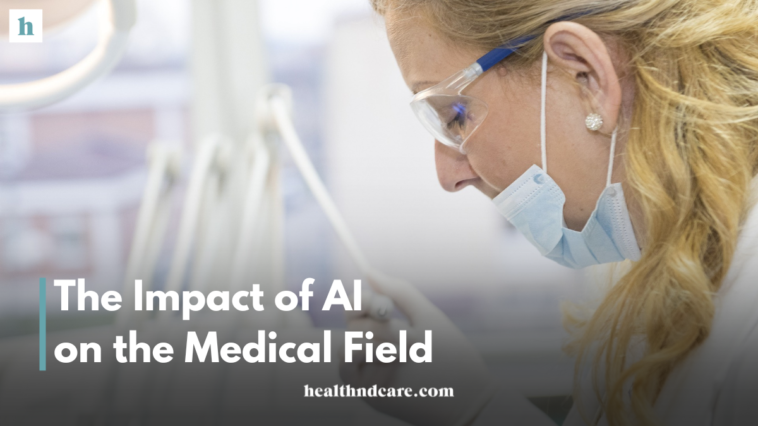Introduction
Artificial Intelligence (AI) is changing the game across many sectors. Also impact of AI on the medical sector has also been papered over by this innovation.
The delivery of diagnosis, treatment regimens, and patient care will no longer be the same in the health care sector. Due to these advances. This blog examines the changes that take place in the magic of medicine. And how promising the medical field can be.
AI in Diagnostics
Picture Interpretation with Precision
Using Big data for assistance, AI is capable of handling enormous documents. Such as medical images, pathology and patient’s medical history. Advanced algorithms greatly enhanced by machine learning. Perform the task of identifying diseases such as cancer, cardiovascular and neurological conditions within a very short time.
Less Room for Mistakes
There are times when medical diagnosis employs a human aspect. And this can lead to incompetence especially when it is juggling with fatigue among other unsuitable practices.
One of the advantages of an alleged AI is its potential cecity to grow tired. Therefore, data can be analyzed at any point in time and for an infinite period of time. Healthcare professionals often induce diagnostic errors, but when there is such an AI system in place, this risk is eliminated.

Artificial Intelligence in Treatment and Personalized Medicine
Division of the Targeted Therapy Dosage
These healthcare units benefit from the fact that AI can come up with a new method of treatment that is fitting for a single patient. Such algorithms can help integrate various relevant information on the patient, including genetic components, the way of life, and history of medical treatment.
This is particularly useful in the case of chronic diseases like diabetes or cancer where personalized treatment can greatly improve health outcomes.
Creation of New Drugs and their Marketing
But the innovation brought with the usage of AI is not limited to patient care only, for it is changing the way drugs are conceived and manufactured. Through the use of artificial intelligence models, drug-disease interaction can be predicted.
Thus significantly minimizing the time taken to develop new drug therapies. This allows complications in the process of drug development to be avoided which not only saves time but also enables reduction in the expenditure incurred on the treatment.
Artificial Intelligence in Surgery and Robots Assistance
Surgeons division
Robotic devices powered by AI technology assist surgeons to perform complicated surgeries with remarkable accuracy. Such systems are helpful in surgery as they give advice and facts simultaneously helping in performing accurate and complex operations.
Robotic Surgery is very popular for orthopedic procedures due to less invasive nature involving shorter hospital stays and enhanced recovery in patients.
He is bound to the integrated approach of the ethical editor’s work.
Surgical procedures and rehabilitation have been performed in remote places thanks to advances made in AI and robotics. Today, a doctor can be remote and conduct an operation, an advantage in areas that may not have the services. This precise technology has helped to expand the frontiers of health care since anyone can receive good health services regardless of where they are.
Delegation of Tasks to Advanced AI Interfaces in Patient Interactions
Assistive Medical Technologies
Virtual health assistants powered by the use of artificial intelligence bring about positive changes in patient care through constant availability. These virtual health assistants can assist with answering basic health queries, helping patients remember to take their medications or help book appointments.
Decreasing the workload on administrative staff is one more benefit from the application of Artificial intelligence allows healthcare specialists to work on the crucial elements of patient care.

Impact of AI on Clinical Operations and Insights
Data Privacy and Security
Data improves patient safety and enhances the quality of clinical outcomes. New visions of data use include patient safety but most importantly, the essence of patient care. Impact of AI. Although the advantages of using AI technology are numerous, it has some drawbacks in terms of data privacy.
Since sensitive data exists in medical records more so with the use of artificial intelligence, lives not data is at risk. Since AI systems essentially require a lot of information, maintaining the confidentiality of these information continues to be a challenge.
Health care should enhance data security measures to safeguard the patients’ data from cyber attacks.
Bias in AI Systems’
The effectiveness of AI systems is dependent on the quality of the data they are fed. If these data have inbuilt bias, the AI would also make bias in healthcare within the physicians.
This enhances inequalities. One of the hurdles that must be crossed for equal health care is bias detection and elimination in AI.



